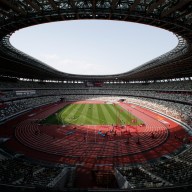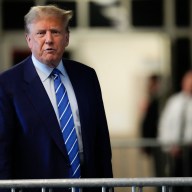It’s amazing the difference a determined film crew can make.
Canadian- born director Roger Spottiswoode learned exactly that on the set of his latest film The Children Of Huang Shi. Specifically, Spottiswoode (Shake Hands With The Devil) found that no challenge was insurmountable for his local crew as they attempted seemingly impossible shots throughout the film’s shoot in rural China.
“The last shot in the film would have been made with a helicopter because you couldn’t get a crane where we were,” the director recalls. “You couldn’t carry a one-ton crane up (a mountain). The Chinese crew carried a crane up there. There’s no Western crew that would have done it, they would have laughed if you asked them to do it — no one would have had the nerve to ask them to do that. But 150 people carried this up a mountain without even thinking about it. Things happen in China in a different way.”
The Children Of Huang Shi tells the story of English adventurer George Hogg (August Rush’s Jonathan Rhys Meyers), who arrived in China in 1937 to cover the Second Sino-Japanese War as a correspondent, but found himself teaching and caring for a group of orphaned boys.
As the Japanese army approached Huang Shi, site of the orphanage, Hogg gathered the students and marched them nearly 1,000 kilometres to Gansu Province where he re-established a school and resumed teaching until his passing in 1945 from a tetanus infection.
Hogg’s legacy is naturally close to the hearts of Chinese who have grown up with the tales of his leadership — literally under fire — from the surviving orphans who kept the story alive.
Beyond logistics, it was one of the reasons why Spottiswoode chose to use Chinese crews to shoot the film and allowed them to shape much of the art direction cinematography, in what he describes as a conscious effort to create a visual experience which mirrored Hogg’s.
But the 63-year-old director points out that not even gruelling shoots up mountain sides could prepare him for press days with Chinese media, who were unfamiliar with many of the themes and historical points made in the film.
“We have references in the film to the fact that the nationalists were starving their own soldiers, we see some things about the past that don’t make sense to them, that are well-known, but they’re not aware of,” Spottiswoode explains.
“I had some criticism over how casting a capitalist (Pirates of the Caribbean: At World’s End’s Chow Yun-Fat) playing a communist, which threw me … In their eyes, Chow Yun-Fat is a wealthy Hong Kong actor who is now playing a middle-class Chinese communist officer. They didn’t even know that those people existed because it’s not (in their history books).”
The film is in theatres today.















